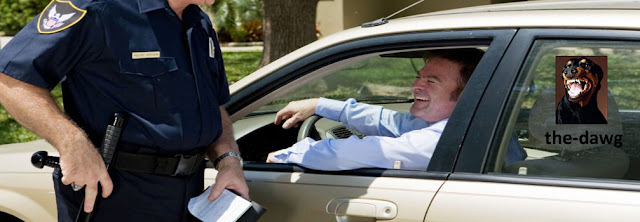Law traffic
Traffic violation law covers any number of unlawful
activities involving a motor vehicle. These laws deal with moving violations
like drunk driving and speeding, as well as violations based on the condition
or status of a vehicle, such as expired registration. State and local
governments have enacted comprehensive motor vehicle codes setting forth the
traffic laws in that jurisdiction. In some states, the department of motor vehicles
assesses "points" against a driver based on the number of infractions
in a given period of time. Too many points can result in an increase in
insurance premiums, as well as suspension or revocation of driving privileges.
The agency in charge of enforcing a particular traffic rule will depend on the location of the traffic stop. Each local law enforcement agency has authority to issue citations in a certain geographical area, though these areas can overlap. For example, a person driving on a highway running through a city could be pulled over and issued a citation by an officer from the city police department, a deputy from the county sheriff's office, or a trooper from the state highway patrol. Those who receive a traffic citation should inspect it carefully to ascertain the name and location of the court that will process the case, and whether a personal court appearance is required.
The agency in charge of enforcing a particular traffic rule will depend on the location of the traffic stop. Each local law enforcement agency has authority to issue citations in a certain geographical area, though these areas can overlap. For example, a person driving on a highway running through a city could be pulled over and issued a citation by an officer from the city police department, a deputy from the county sheriff's office, or a trooper from the state highway patrol. Those who receive a traffic citation should inspect it carefully to ascertain the name and location of the court that will process the case, and whether a personal court appearance is required.



Comments
Post a Comment